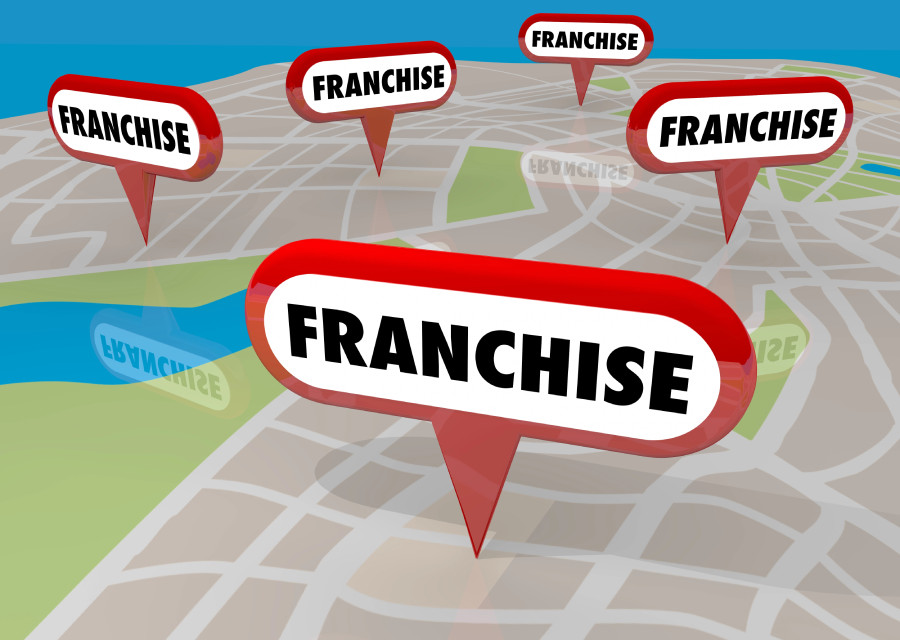How a Franchise Finance Broker Can Help You Secure the Right Franchise Loan

Business Purchase Loans to Buy a Franchise
Make An Enquiry
Connect with innovative, professional business loan brokers! Tap the orange button to call us or the blue button to message us now.
Speak With A Broker
We’ll find the perfect business purchase finance loan that matches your situation. Get the best deal. Speak with us today!
Loan Approved
Getting a loan for buying a franchise or business doesn’t need to be complex.We know how to get your loan approved in fewer steps.
Navigating Franchise Lending in Australia: What You Need to Know
Franchise finance has become more nuanced over the past few years. Traditional lenders have become more selective, particularly after the economic disruption of COVID-19. This has created a more cautious lending environment, particularly for startups, small businesses, and new franchisees. As a result, understanding how franchise lending works—and what lenders are looking for—has become essential for anyone considering a franchise purchase.
In general, banks assess franchise loan applications using three core criteria: the financial strength of the applicant, the structure and performance of the franchise brand, and the commercial viability of the specific location or business opportunity being funded. While your credit history and personal financial position are important, banks now pay close attention to the performance of the franchise system you’re entering. If the brand is growing, provides clear financial documentation, and has a low default rate, it’s more likely to be considered positively by lenders.
This is where the role of a franchise finance broker becomes particularly useful. Rather than approaching lenders directly, a broker can help position your application to meet the expectations of individual banks and non-bank lenders. They also help identify lenders that currently have appetite for franchise lending—which can fluctuate based on industry trends and internal risk appetite.
Why Franchise Finance Is Different from a Standard Business Loan
Unlike a traditional business startup, franchising brings a unique lending scenario. On the surface, it might seem like just another small business loan, but lenders look at franchises differently. Banks and non-bank lenders evaluate the franchise brand, its financials, and its track record with other franchisees—not just your individual circumstances.
We note that that franchise lending often represents just 2–3% of a bank’s total business loan book, making it a niche area that many brokers and bankers don’t fully understand. That’s why working with a franchise lending specialist is so important.
A broker experienced in franchise finance understands how lenders assess franchise brands, how to present applications properly, and—crucially—which lenders actually want to write loans for certain franchise systems. This is one of the most overlooked advantages of using a broker.
Tip: Ask your franchisor directly which lenders are currently writing loans for their brand. If they can’t name one, it may signal a red flag about their lender relationships.
Get started with our easy to use calculator
To help you learn more we’ve put together a RATE CHALLENGE calculator
that will allow you to understand if you currently have a good deal. Contact us
for a full refinance conversation and you could save!
This service is provided by your Free Mortgage Broker.
Refinance
Loan Repayment

The Broker’s Role in the Franchise Journey
- Reviewing financial projections and business plans before submission
- Identifying lenders who have existing relationships with the franchise system
- Structuring loans to include fit-out costs, equipment purchases, and initial operating capital
- Explaining the implications of fixed vs variable interest rates, secured vs unsecured finance, and other loan conditions
- Helping prepare for lender due diligence, including personal financial position and credit history
Avoiding Mistakes with the Right Broker by Your Side
Going straight to a bank or lender might seem like the easiest route, but without the right guidance, it can lead to missed opportunities or flat-out rejection. A finance broker who specialises in franchises does far more than just shop around for rates. They understand the systems behind each brand, know which lenders currently have appetite for specific franchises, and can tailor a loan structure to match the specific model—whether that’s Greenfield, resale, or turnkey.
In many cases, a broker can structure the finance to cover everything from the store fit-out and equipment, to working capital and early-stage cash flow. For brands that already have strong lender relationships, this process becomes significantly faster. And if your chosen franchise is still building that rapport, a broker can bridge the gap by presenting your application in a way that speaks the lender’s language.
One of the best ways to check a brand’s finance reputation is to ask a simple question: “Which lenders are currently writing loans for your franchise, and who’s the main contact?” If they can’t give you a clear answer, it might be time to explore other opportunities—or at least get your broker involved early to assess the risk.
At Rate Challenge we can help you understand the ins and outs of franchise lending in Australia, ensuring your application is positioned for success from day one.

Greenfield, Resale, or Turnkey? Know What You’re Financing
Franchise investments aren’t one-size-fits-all. As you navigate your options, you’ll hear terms like “Greenfield”, “resale” and “turnkey”. A franchise loan broker can help you structure funding that suits the model you’re buying into:
- Greenfield franchises are brand new locations, often requiring full fit-out and working capital funding.
- Resale franchises involve buying an existing, trading location—sometimes with historical financials and existing staff.
- Turnkey franchises offer a complete, ready-to-go setup—ideal for buyers who want to walk in and start trading from day one.
Each of these requires a different funding strategy. For example, some lenders may prefer resales due to proven trading history, while others might favour a strong franchisor with a turnkey model that reduces risk.
Interested in buying a resale franchise? Platforms like www.seekbusiness.com.au list hundreds of franchises for sale across Australia. But remember, a lower entry price doesn’t always mean lower risk. A business franchise loan broker can help you understand the true value of the business you’re acquiring.

Key Qualities of a Finance-Friendly Franchise System
Not all franchises are equally supported by lenders. Over time, lenders develop informal ‘white lists’ and ‘grey lists’—groups of franchise systems that they are comfortable financing and those they approach more cautiously. These distinctions are based on data around profitability, growth, and support structures.
Finance-friendly franchises usually share a few characteristics. First, they’re transparent with unit performance metrics, including how many franchisees have exited or transferred locations in the past few years. Second, they provide franchisees and brokers with detailed financial information, including cost breakdowns, projected revenue figures, and business plan templates. Third, they have established relationships with lenders and are able to provide a direct point of contact for loan discussions.
When researching franchise opportunities, it’s worth asking for a copy of the franchise disclosure document and reviewing sections that relate to closures, resales, and ongoing support. These indicators can help you understand how well the system is functioning and whether it’s positioned for long-term growth. Lenders often ask for the same information during the application process.
How Brand Strength Impacts Your Franchise Financing Success
One of the most overlooked yet powerful factors in securing franchise funding is the brand itself. Lenders don’t just assess your personal finances—they’re equally focused on the reputation, performance, and growth of the franchise you’re investing in. That’s why working with a franchise finance broker who understands this dynamic can be so beneficial.
When a franchise brand is actively marketing, expanding, and supporting its network, it signals confidence to lenders. In contrast, a franchise system that seems stagnant, doesn’t invest in visibility, or hasn’t grown its footprint in years can raise concerns. A lender may wonder—if this brand isn’t growing, why would a new location succeed?
FranchiseBuyer highlights this concept well. At events like the Hot Rod and Custom Auto Expo at Rose Hill Racecourse, certain brands like Snap-on Tools make an active effort to connect with the public. Meanwhile, other franchises—especially in food and retail—are noticeably absent. This absence matters. Visibility and community engagement aren’t just good marketing—they’re also markers of how committed a brand is to supporting its franchisees.
Consider brands like Guzman y Gomez, which treats every store opening as a major event. They create real buzz, with drones in the air, live activations, and free food giveaways. It’s not just about theatrics. It’s about showing momentum—and lenders take notice of momentum.
This level of effort is a sharp contrast to franchises that simply launch a Facebook ad campaign and wait for customers to walk in. In today’s economy, lenders are more inclined to support businesses that proactively generate demand and maintain a strong presence in both the community and the broader market.


Ready to Start the Conversation?
Let’s make your home loan work harder for you. Whether you’re looking to reduce your repayments, tap into your equity, or just want a better deal, I’m here to help.
Get in touch today to book a free refinance review — and let’s find out what your mortgage could be doing for you.
Multi-Channel Marketing as a Signal of Maturity
Another clue to a brand’s strength lies in how it markets itself. Strong franchises don’t rely on one channel they communicate with their audience in multiple ways. That might include email marketing, SMS campaigns, letterbox drops, newsletters, and local partnerships. This isn’t just good marketing practice—it’s evidence of a brand that understands the full customer journey.
When a franchisor helps franchisees with local area marketing—referred to as LAM in the industry—it provides a clearer path to early revenue generation. Lenders like to see this because it shows the franchisor is committed to helping locations ramp up quickly. It also proves that systems are in place for consistent outreach, rather than leaving the franchisee to figure it all out on their own.
This is something a franchise lending specialist can help evaluate. They’ve worked with enough brands to know which ones genuinely support franchisees, and which only offer lip service.
Why Lender Relationships Matter More Than Ever
One of the most powerful advantages of a good broker for franchise business loans is access to lender relationships you simply don’t have as an individual. The franchising sector has changed significantly in recent years, with many banks tightening their credit policies. In some cases, franchisees struggle to get finance—not because they’re not qualified, but because the franchisor hasn’t maintained strong relationships with lenders.
Lenders want to see:
- Transparent financials from the franchisor
- A clear track record of successful franchisees
- Accountability when underperformance occurs
Brokers who specialise in this space often already know which brands are lender-approved, which lenders are actively writing franchise deals, and how to package an application that ticks all the right boxes. This can save weeks—if not months—of stress and back-and-forth with banks that don’t fully understand your opportunity.
As Franchise loan brokers, we connect borrowers with lenders. We understand the nuances of franchise finance and can negotiate more competitive outcomes, often faster than going it alone.


The Finance Struggles Most People Don’t Talk About
While some brands position themselves as “bank friendly,” the reality is that many are not. As finance veterans with experience at the big four banks: franchise lending is a niche. It makes up only a small slice of a lender’s portfolio, which means most lenders don’t prioritise it.
Because of this, the franchise brand plays a huge role in determining whether a deal is approved. Poor relationships between franchisors and lenders, limited or outdated financial documentation, and a lack of accountability when franchisees underperform can all contribute to loan refusals. Often, it’s not that the franchisee is a bad borrower—it’s that the brand they’re buying into hasn’t maintained credibility with the banks.
Typically, franchisors provide all the wrong documents when working with lenders. Rather than submitting financial projections, risk assessments, or action plans, they often send marketing brochures and promotional materials—none of which help lenders make a decision. In short, if a franchise brand can’t prove it knows how to support its franchisees financially, lenders may choose to steer clear altogether.
This is why working with a franchise finance broker is so critical. A good broker can assess not only your suitability as a borrower, but also whether the brand you’re looking at is finance-friendly.
Trends Influencing Franchise Lending in 2025
Several developments are shaping how franchise finance is being offered in 2025:
- Greater scrutiny of business models: Banks are focusing more on how a franchise business generates income, especially in industries affected by delivery services, digital disruption, or seasonal demand.
- Increased interest in lower-investment franchises: Many lenders are more cautious about funding high-cost franchises. Models with lower startup costs—especially mobile or home-based franchises—are becoming more popular with borrowers and lenders alike.
- More emphasis on cash flow planning: Lenders are placing greater weight on early-stage cash flow planning, particularly for Greenfield sites. Having sufficient working capital for the first 6 to 12 months is increasingly seen as essential.
- Diversification through virtual or multi-brand operations: Some franchise groups are offering multi-brand or “virtual kitchen” models that allow franchisees to operate more than one brand from a single location. This trend is growing and may appeal to lenders if the underlying operations are sound.
Practical Steps for Franchise Buyers
- Conduct brand due diligence: Investigate the franchise’s trading history, growth patterns, and level of franchisee support.
- Request current financial data: Ensure the franchisor can provide business models, revenue forecasts, and cost breakdowns specific to your location.
- Prepare your personal financials: Lenders will assess your assets, liabilities, income, and credit score in detail.
- Develop a complete business plan: Include a marketing strategy, launch budget, and cash flow forecast for the first year.
- Engage a finance broker early: An experienced broker will help you identify the right lenders and prepare your application for success.
Conclusion
Franchise finance is a specialised field that requires both an understanding of small business lending and insight into how franchise systems operate. With increased scrutiny from lenders and a growing appetite for self-employment among Australians, it’s never been more important to approach franchise finance with a well-informed strategy.
Engaging a franchise finance broker offers you more than just convenience. It gives you access to experience, industry connections, and a better chance at securing the right loan structure—particularly in a competitive or cautious lending environment.
Whether you’re looking to purchase a new site, buy into a resale, or finance a multi-brand concept, understanding how lenders think—and preparing accordingly—is key to setting your business up for long-term success.
Ready to Take the Next Step?
Contact Us Today!




